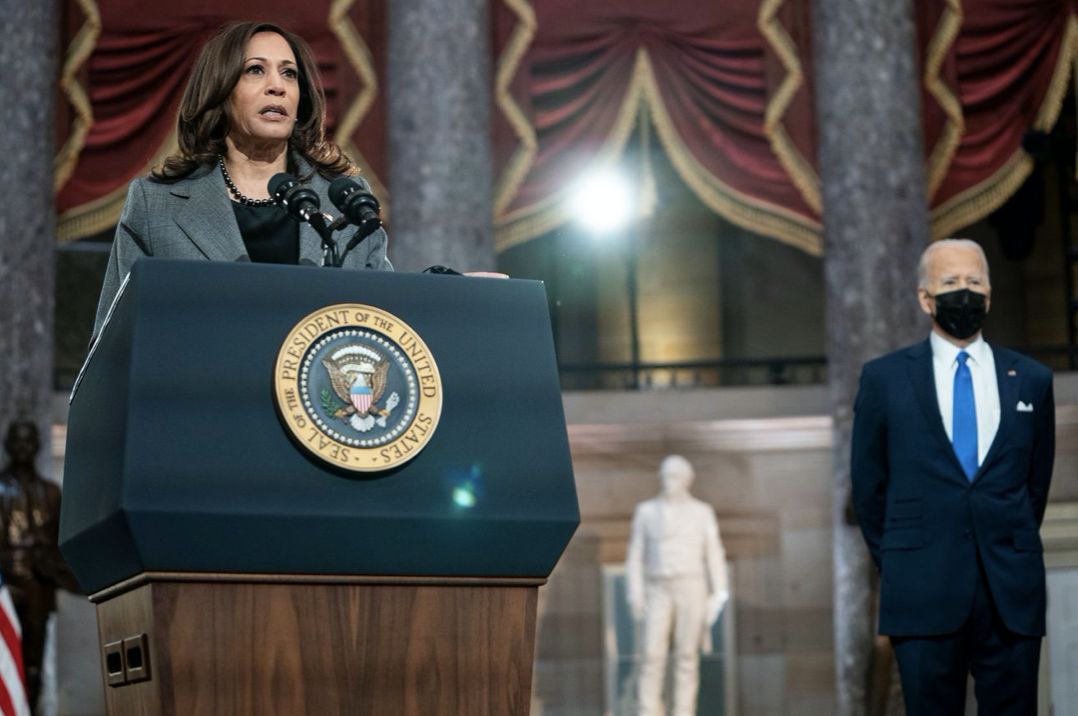By: Gerard Baker – wsj.com – January 10, 2022
But there’s another, more intriguing possibility. What if she and the administration she works for actually believe their own narrative that they are engaged in an existential, twilight struggle against the forces of darkness among us. That those forces are as menacing to the American way of life as were the Axis powers and Islamist terrorists? What if the military leaders who have been steeping themselves in the modern-day canon of progressive thought see the threat of white supremacist ideology, domestic far-right extremism and the revanchism of the Trumpists as the principal clear and present danger to national security?
To ask this is not necessarily to mock or even challenge the idea that the U.S. has profound domestic divisions, or to deny that some in the country reject the basic elements of the compact necessary to keep a democracy from violently disintegrating.
But it’s legitimate to ask what this means for the administration’s larger conception of national security. How does the perceived need to focus on domestic threats affect the objectives of America’s global strategy? No one would say it’s impossible to confront domestic threats and external challenges at the same time. But this administration claims to face a greater threat from domestic enemies than any in the past 150 years. The most important question: How does the rest of the world—especially America’s adversaries—hear the Biden-Harris message, and what calculations do they make as a result?
The answer is depressingly obvious.
Mr. Biden seems to think that triumphing over his domestic enemies is itself the primary condition for assuring the success of America’s interests in the world. Rallying the leaders of 100 countries at his Summit for Democracy last month, he called the struggle “the defining challenge of our time” and said that democracy was in retreat in the U.S. too.
He may ultimately prove right. At minimum we can say that America will have trouble pursuing its interests if it is hobbled by bitterly divisive domestic politics.
But in the meantime autocrats aren’t easily persuaded by rallying cries for democratic renewal. They’re more impressed by the realpolitik of diplomacy and strategic decision-making, and for now they’re seizing their chances.
In Europe, the Middle East and Asia, the early steps of the Biden administration seem—to friends and potential foes alike—to reflect the distraction from the threat at home.
Diplomats in the countries of these regions speak—in public and even more emphatically in private—of a world in which America has retreated to the sidelines.
We don’t know how the latest Ukraine crisis will play out, but the concessions the Biden team has already made to Vladimir Putin are causing deep disquiet all over Europe.
Sitting down to negotiate with Russia over its demand for changes in the military posture of the North Atlantic Treaty Organization in Central and Eastern Europe is a step beyond what any of Mr. Biden’s post-Cold War predecessors have done. It’s worth noting again the irony of a Democratic president who came into office promising to repair U.S. alliances. As alarming as Donald Trump’s rhetoric sometimes was to European leaders, Mr. Biden’s diplomacy is proving scarier in practice, as it did in Afghanistan.
Elsewhere in the world there is evidence of a vacuum left by American leadership getting filled in ways that are unlikely to further American interests.
Officials in the Middle East are listening to the Biden security priorities with unease—and making their own plans. Last month Saudi Arabia and Iran began an unexpected diplomatic rapprochement. Though little solid progress has been made so far, the consequences could be far-reaching. The Trump administration’s tilt toward Riyadh and an Israel-Arab détente has been replaced by vacillation. The elusive search for an Iranian nuclear deal, the ostracizing of the Saudis because of the brutalities of Crown Prince Mohammed bin Salman, and the progressive left’s aversion to full support for Israel suggest an America reduced to follower rather than leader status.
The largest question concerns China. Perhaps the Biden team is subordinating all security considerations to the development of a brilliant strategy to manage and counter China’s rise. But the signs so far are not encouraging.
Mr. Biden isn’t primarily to blame for the fact that a third of American voters don’t think he’s a legitimate president. But he does lead a party many of whose activists don’t seem to think America’s traditional values are worth defending at home or abroad. And when his administration elevates (or reduces) its domestic opponents to the status of a foreign enemy, the only winners are the real foreign enemies.
To see this article and to subscribe to others like it, choose to read more.
 Listen Online
Listen Online Watch Online
Watch Online Find a Station in Your Area
Find a Station in Your Area









 Listen Now
Listen Now Watch Online
Watch Online
